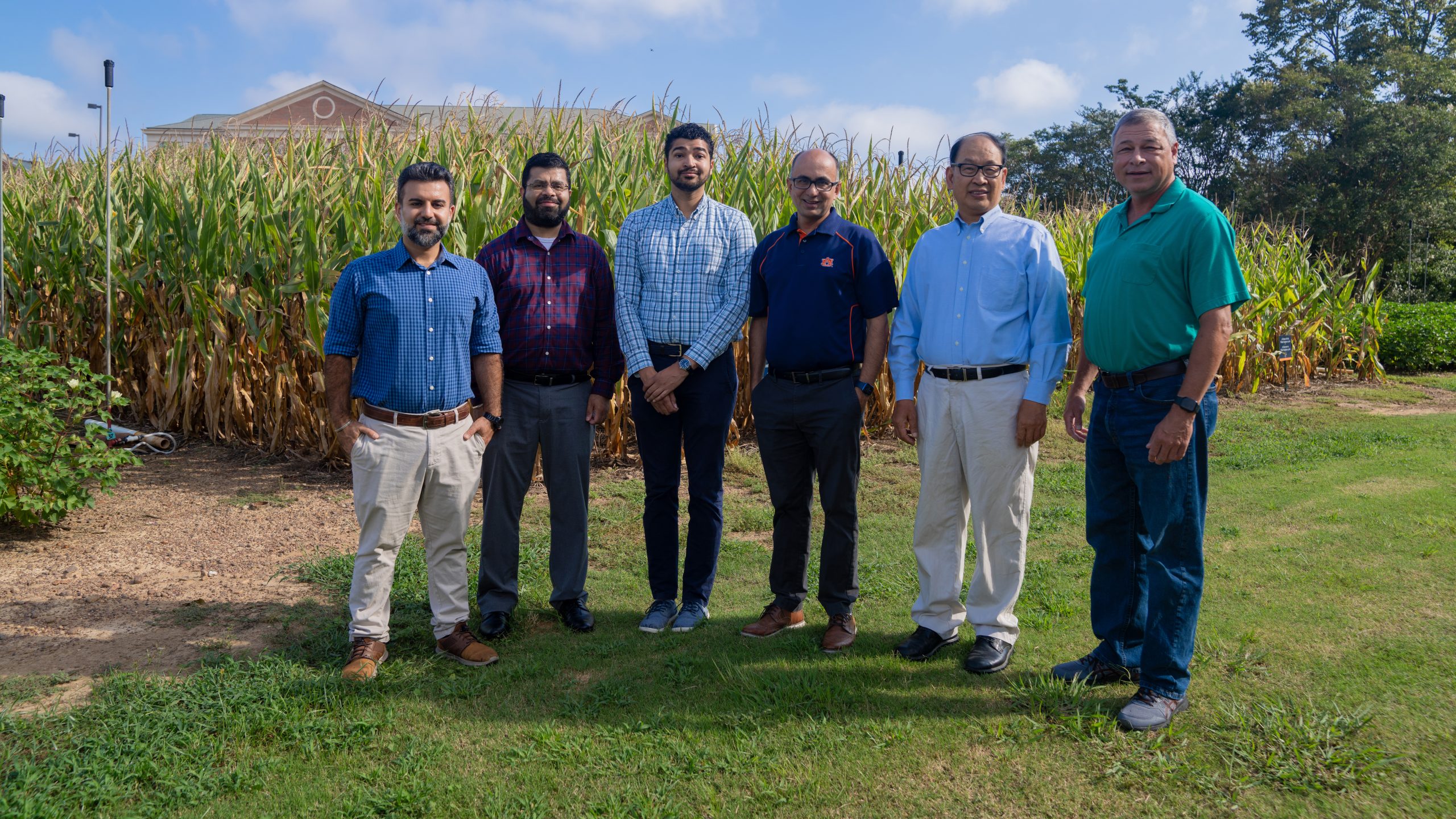The Auburn University College of Agriculture and the Alabama Agricultural Experiment Station were awarded approximately $6 million from the U.S. National Science Foundation (NSF) for a four-year project entitled “Developing effective adaptation strategies to enhance the resilience of farmers under changing climate.”
“Through research, educational and outreach activities, this project aims to develop and assess innovative agricultural management practices that will help reduce greenhouse gas emissions from agricultural systems, improve soil health and water quality, and reduce the vulnerability of crop failures during droughts,” said Jasmeet Lamba, associate professor, Department of Biosystems Engineering, and the principal investigator on the project.
Other investigators from Auburn include Sushil Adhikari, Professor & Director, Center for Bioenergy & Bioproducts, Biosystems Engineering; William Batchelor, professor, Biosystems Engineering; Hossein Jahromi, assistant research professor, Biosystems Engineering; Charles Chen, professor (Peanut Breeding & Genetics), Crop, Soil & Environmental Sciences; Neha Potnis, associate professor, Department of Entomology and Plant Pathology; and Wendiam Sawadgo, assistant professor and extension economist, Department of Agricultural Economics & Rural Sociology.
The NSF award is a collaboration among Auburn, New Mexico State University (Rajan Ghimire, Shannon Norris-Parish, and Jinfa Zhang) and the University of Delaware (Deb Jaisi, Lindsay Naylor, and Erin Sparks).
“Agricultural activities result in greenhouse gas emissions that contribute to climate change,” Lamba said. “As a result of climate change, droughts are becoming more frequent and severe.”
Drought, a period of prolonged dry weather due to a lack of precipitation, reduces the water availability required to maintain crop productivity, which impacts farmers substantially, whose livelihoods depend on agricultural productivity.
“Developing and assessing management practices that can help withstand and recover from the negative impacts of droughts on agricultural operations will contribute to the sustainability of agriculture and food security,” Lamba said.
The project team members will work collaboratively to accomplish the following objectives: (1) develop engineered biochar to lower agricultural nitrous oxide emission in a climate-resilient system; 2) determine the plant genes and pathways associated with a positive yield response to engineered biochar amendment under water deficit conditions; 3) elucidate the impact of engineered biochar on nutrients, greenhouse gas emissions and microbial processes; 4) simulate the impact of extreme events on crop yield and nutrient losses, and identify the suites of conditions that are less impactful for agricultural productivity; and 5) assess farmers’ perceptions and the economics of using engineered biochar along with the animal waste.
Biochar, explains Adhikari, is a carbon-rich material produced from the thermal decomposition of organic materials. In this project, we will engineer biochar by modifying biochar properties to help reduce nitrous oxide emissions from agricultural systems.
The project includes educational, mentoring and training activities for undergraduate and graduate level students, post-doctoral scholars, early career faculty and various communities.
The research is funded through NSF’s Established Program to Stimulate Competitive Research (EPSCoR). Auburn is one of 21 institutions to receive part of a $56 million investment.
“As evident from EPSCoR’s impact, investing in research infrastructure is a powerful catalyst for strengthening our nation’s security, competitiveness and fostering groundbreaking scientific advancements,” said NSF Director Sethuraman Panchanathan.
“I’m thrilled to announce this year’s EPSCoR Track-2 awards, which will strengthen community and regional efforts to understand the impacts of a changing climate and enhance the resilience of disproportionately affected communities. By addressing these critical challenges, and engaging with communities impacted by climate change, we have the potential to advance innovation and promote economic stability and recovery in EPSCoR jurisdictions and beyond.”





